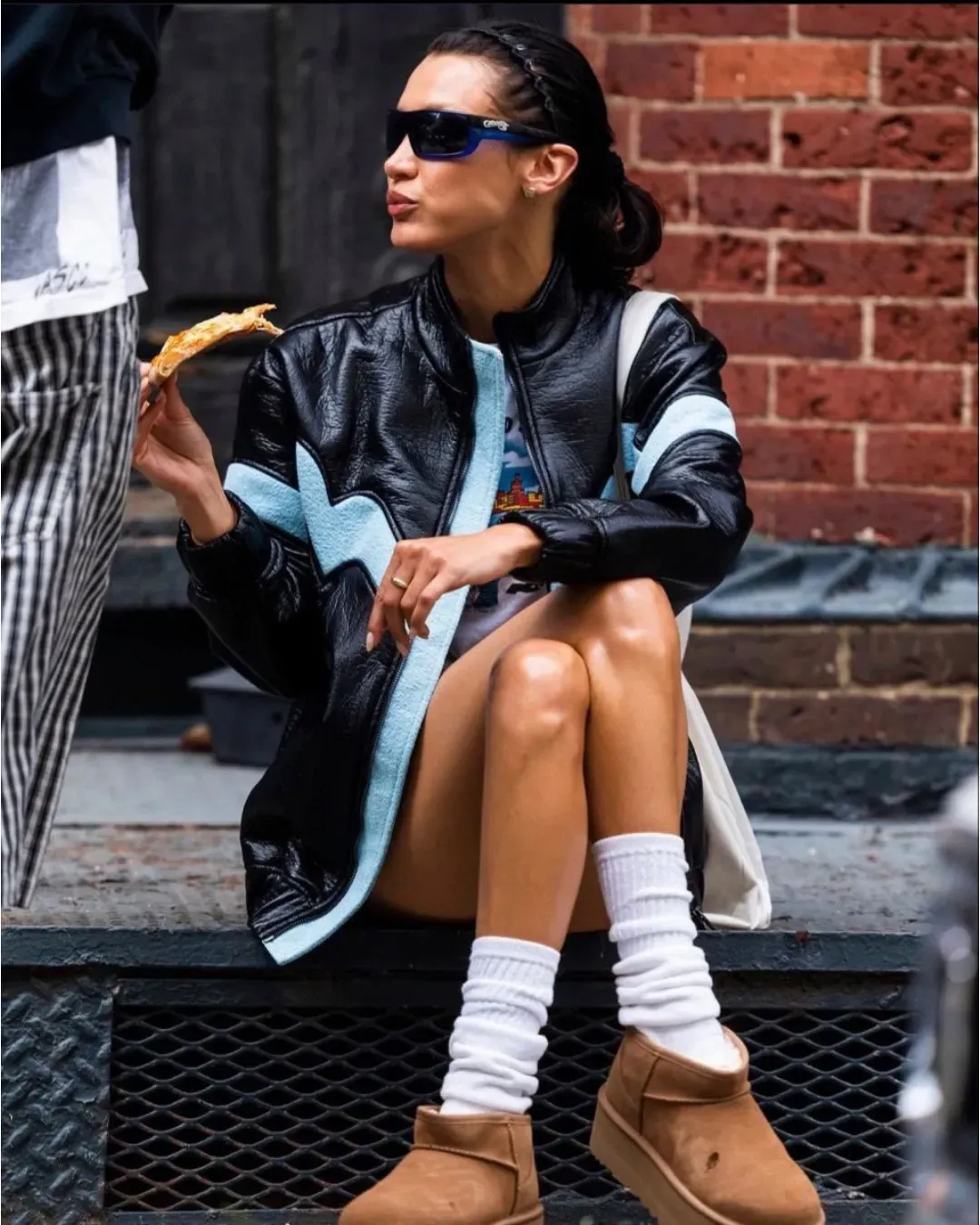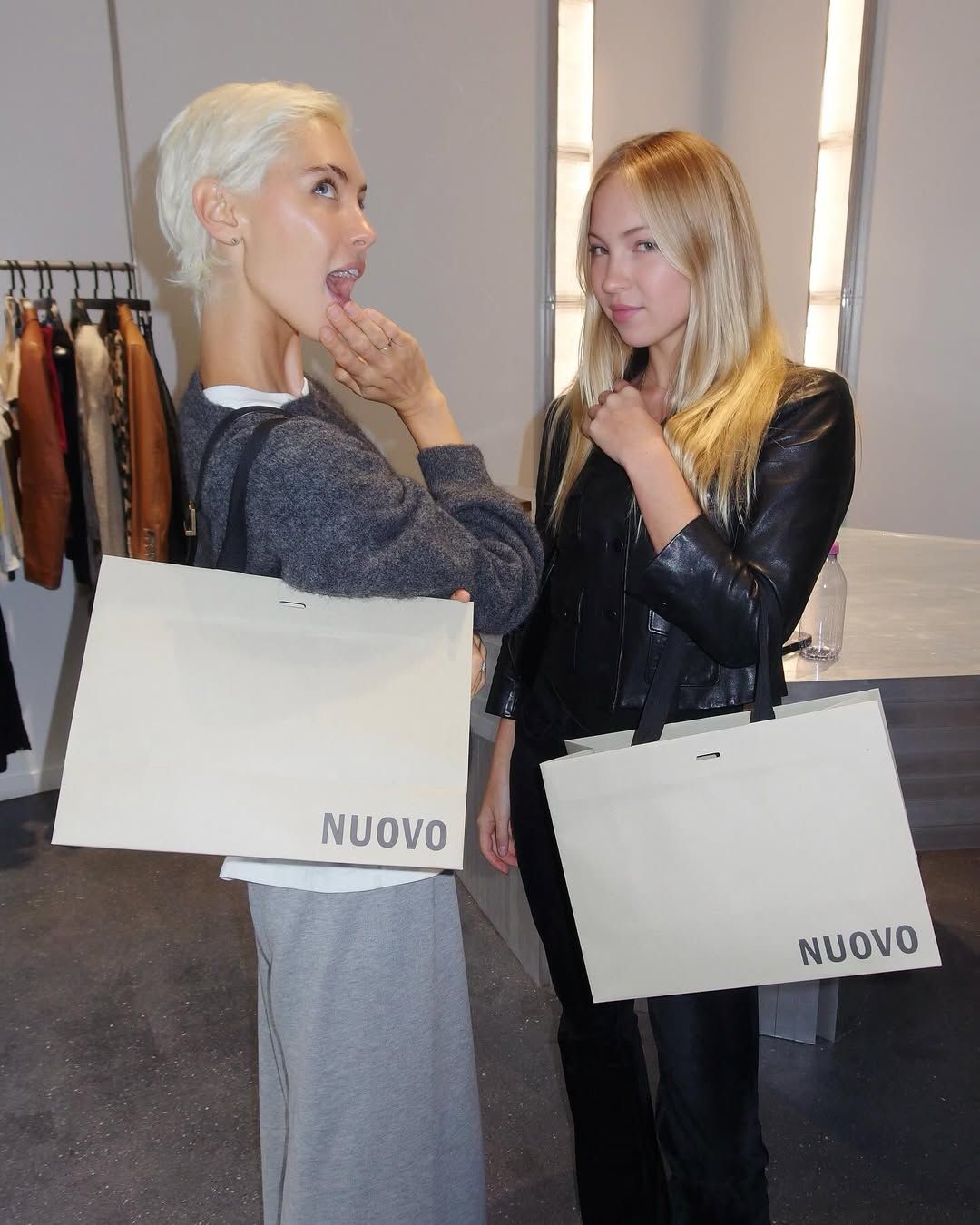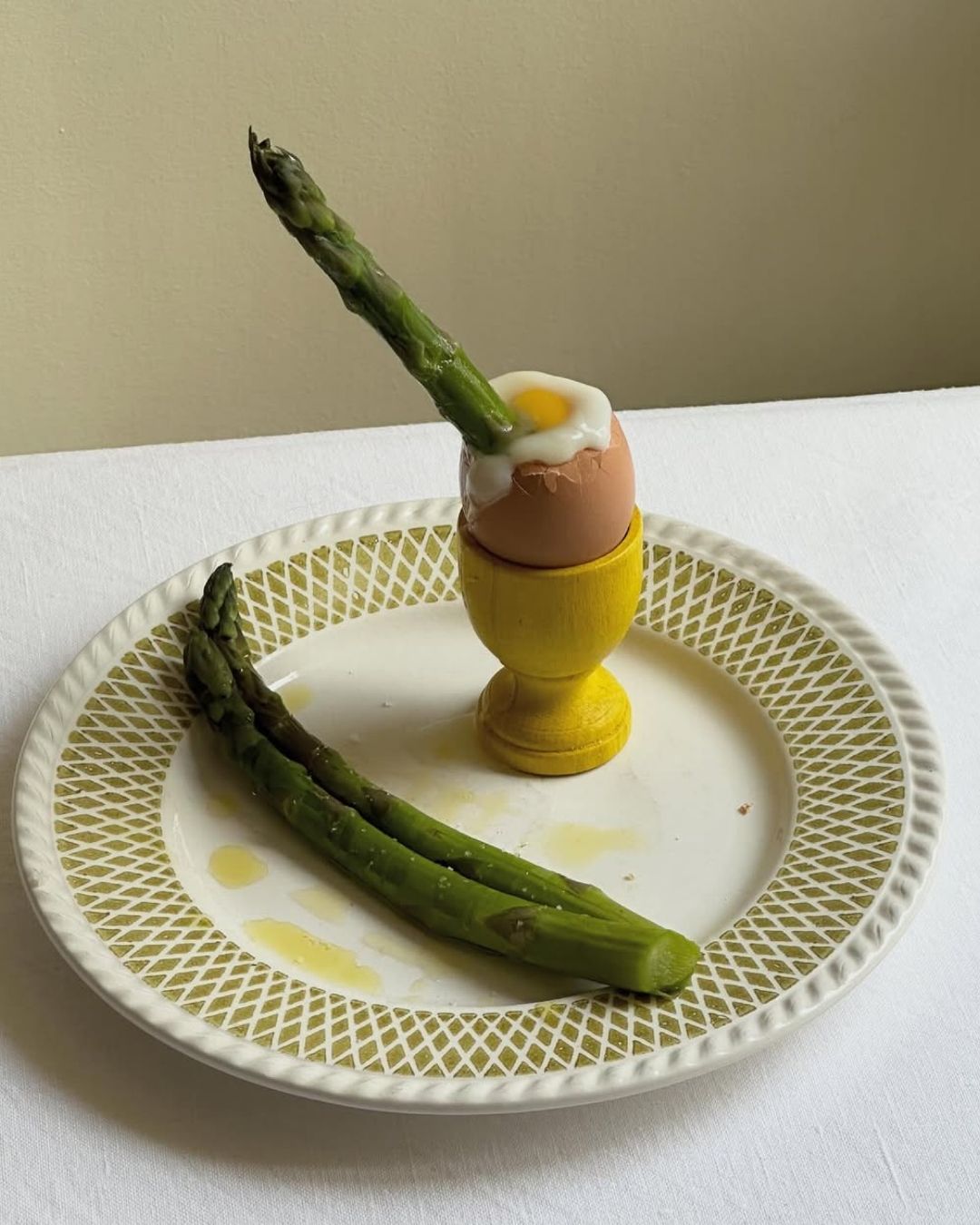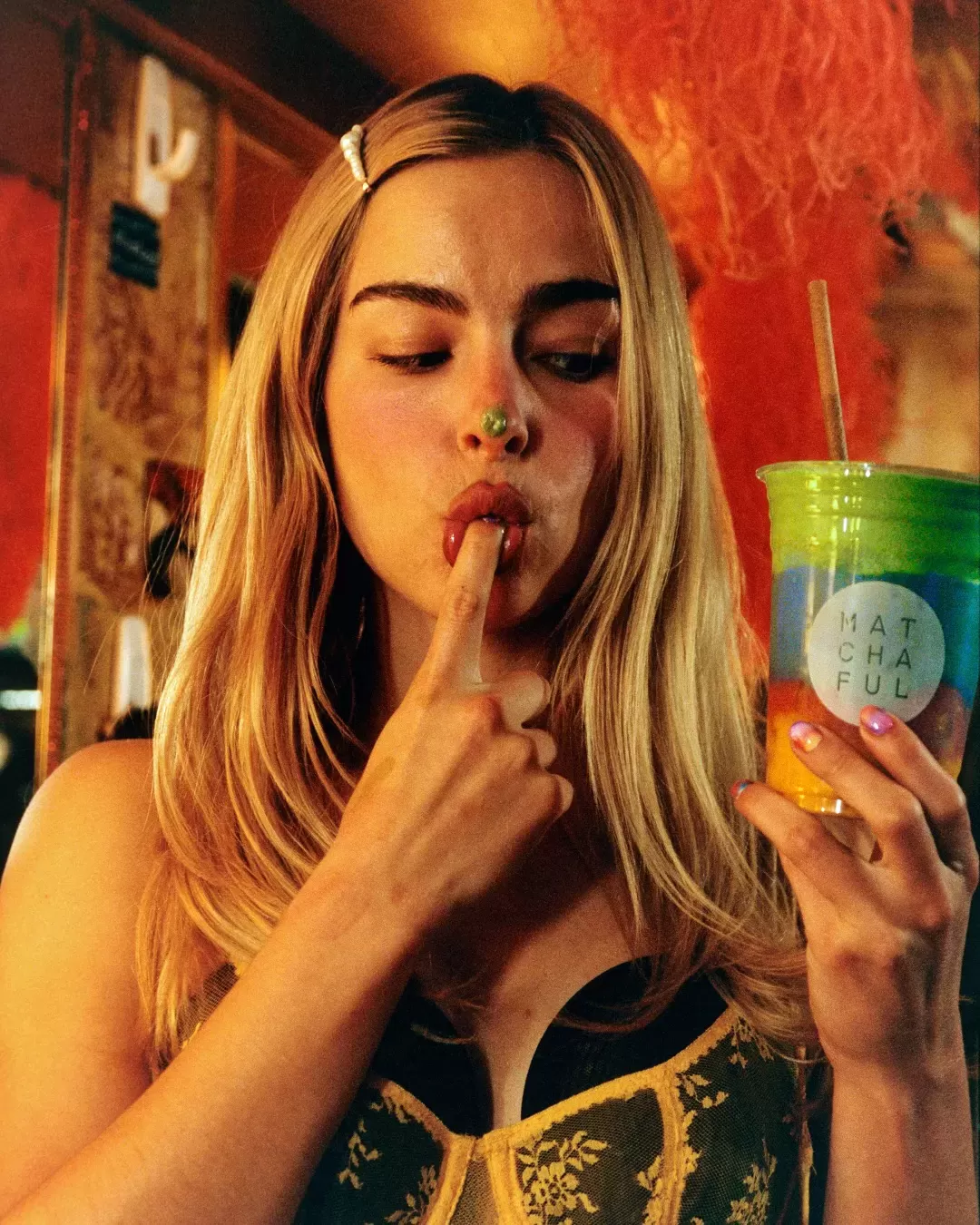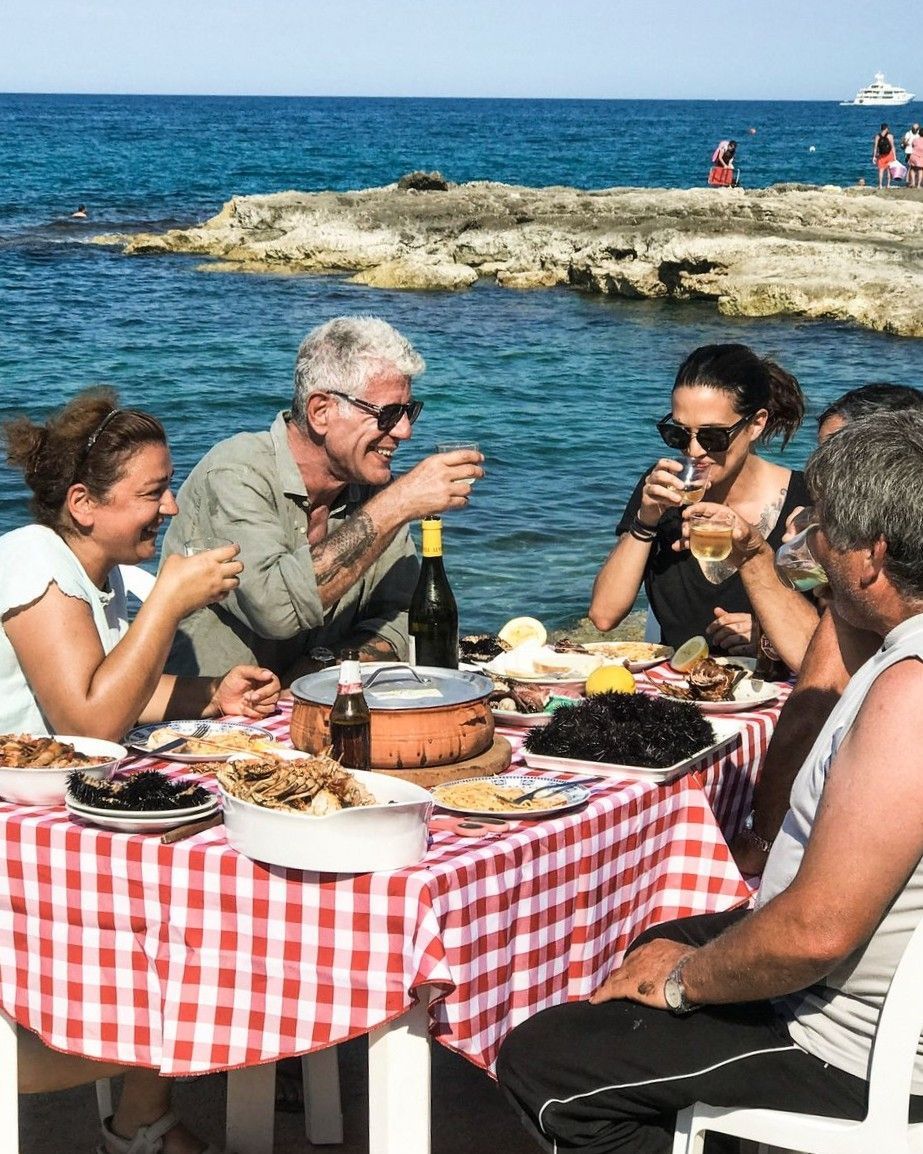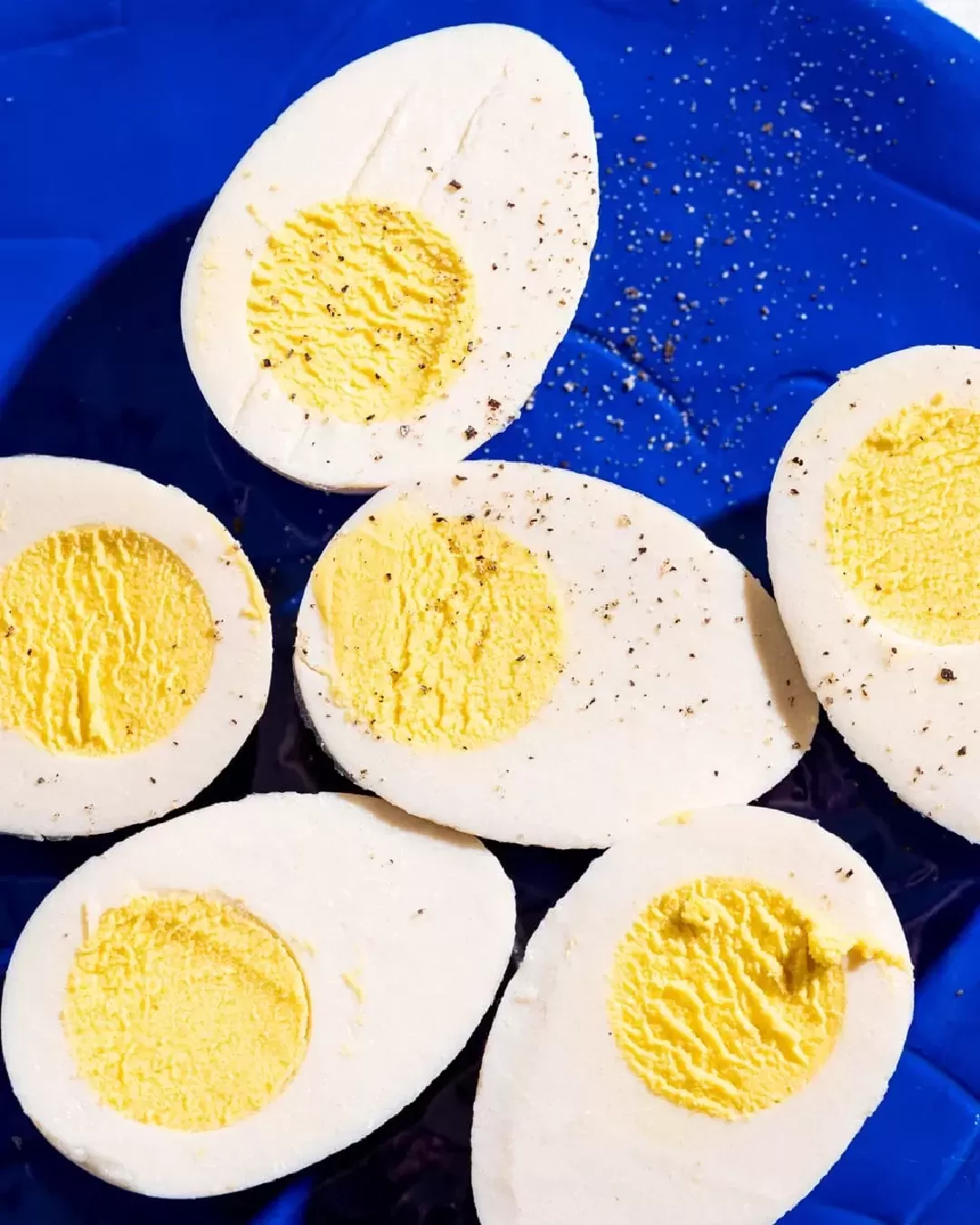
Luca Pronzato, prince of nomadic cuisine No one knows pop-up restaurants like the founder of We are Ona
A shirt with two large front pockets in workwear style, loose trousers, and leather derby shoes. That morning, in his office in the 10th arrondissement, in the heart of Paris, Luca Pronzato welcomed us in a simple but chic all-black outfit, often the uniform of the most creative minds. The place reflects the global curiosity and attention to detail that distinguishes the events of We Are Ona, the culinary studio he founded in 2019, which has irreversibly broken the codes of gastronomy with its pop-up restaurant concept. Wooden floors, brick walls with long bay windows, and ceilings with exposed wooden beams frame a space filled with design pieces. Here, an armchair resulting from the collaboration between Muller Van Severen and KASSL Editions. There, the iconic Luce Orizzontale S1 Hanglamp by Flos hangs from the ceiling above a long wooden table serving as the headquarters for meetings. On the shelves of the enormous library in one of the rooms, vinyl records ranging from Louis Armstrong's jazz to Santana's rock accompany dozens of books on fashion, photography, design, and, of course, cooking. A trained sommelier with a past leading the former Chez Alfred and a three-year experience in the dining room at Noma in Copenhagen, 32-year-old Luca Pronzato is one of the most acclaimed figures in gastronomy. From a beach house erected on the Turkish coast, facing the islands of Léros and Kalymnos, to an old water reservoir in Basel, and an industrial garage in the heart of the Marais, this young man, who has the art of setting the table in his blood, has invested in the most unusual places over the past few years to bring unique culinary experiences to life.
What does being "nomadic" mean to you?
Nomadism is related to travel. In my world, travel allows us to discover new cultures and soak up different culinary traditions. At We are Ona, that’s what drives us and inspires us.
In a certain way, you’ve been somewhat nomadic throughout your career.
Indeed, I’ve always traveled. During my experience as a sommelier, I did a world tour of wine in about thirty countries: England, Italy, Denmark, Germany, Japan... All of this made me who I am today.
You’ve always had a passion for natural wine, which today has gained a significant place in the market. At the time, however, it wasn’t a trend.
I had the chance to work at Anselme Selosse in Champagne at 18, which gave me the opportunity to develop this passion. It was very different, yes. Consumption was based on rather red and full-bodied wines; there was less interest in fruity and light wines.
What is your favorite wine?
I don’t even have a favorite dish. But one of the bottles that really gave me chills is "Initial" by Anselme Selosse.
The one you like to bring to a dinner with friends?
La Malvasia di Candia by winemaker Francesc Boronat, based in southern Catalonia! It’s a very light white, with an aromatic profile reminiscent of Italian wines. I use it for my project CANETTA too!
Among the many stages of your professional journey, there’s Noma. What did you learn there?
To create comprehensive culinary experiences. Because a meal isn’t just a gastronomic moment, but also a moment of design, service, and atmosphere.
When did you get tired of classic gastronomy?
To be honest, I never got tired of classic gastronomy. I like traditional restaurants, which are full of incredible talents. But I couldn't see myself evolving creatively in that format. So, I wondered how to create more horizontality and value each talent, such as chefs, sommeliers, servers, designers, architects, florists, baristas… From this question, We Are Ona was born.
Tell us about We Are Ona.
It's a culinary studio that creates ephemeral food experiences around the world. The idea is to bring together a community of talents who are not just chefs but creatives of all kinds.
What was the most difficult part of creating this concept?
The beginning. When you embark on an entrepreneurial adventure, you often have models. That was not the case for us. We had to do a lot of testing, discoveries, mistakes. Now, even though the events differ from one another, we have found our modus operandi.
What do you want to find in these events?
A global gastronomic experience. And good memories.
Over the past five years, there have been many events. Which one holds a special place in your heart and why?
I inevitably think of the one in Venice, in 2022, in an old palazzo, formerly the home of Casanova. The menu included unforgettable cuttlefish tagliatelle and guanciale. That evening, we had Isabelle Huppert and Julianne Moore sitting at the same table. But there was also the pop-up with designer Harry Nuriev in Paris, where guests had the chance to eat at a counter set all around a kind of large fountain made of sinks. Amazing.
Today, the fashion world permeates other worlds, just like that of cuisine. In some of your events, these two meet halfway.
Absolutely, because we believe that gastronomy has an important place in the process of creating a brand's universe. Through food, we can create a community around a brand, we can represent its poetry and essence.
Speaking of style… It seems to me that you seek a certain distinction, but without wanting to overdo it.
You're right (laughs), I like to have a sober approach to fashion. The service uniform is my everyday outfit.
What if your events were fashion shows?
In that case, Maison Margiela's shows would be an inspiration.
The world of luxury isn't the only one seduced by gastronomy, which has always been fertile ground for cinema and television. Today, with The Bear, this enthusiasm seems even more significant. What does the series portray well about this world?
Like many professions, gastronomy operates at different paces, requiring a lot of personal investment and effort. Sometimes, there are excesses. But in recent years, a whole new generation is trying to bring a different vision, to show that it is possible to work less and better. This is a cause I have always defended and that I found in The Bear.
After Ona, the concept of residence and nomadic cuisine has even become a trend…
Of course! But we are delighted with all the trends, we are inspired by young talents as well as the more established ones, by new formats as well as traditional restaurants.
How do you see gastronomy evolving in the coming years?
In this world, the traditional restaurant will always have its place. But I believe that in the future we will be able to enjoy a wider range of forms of expression and varied culinary ideas.
And your plans for the future?
I want to take We Are Ona to other countries. In this regard, we recently launched a collaboration with the modern and contemporary art fair Art Basel, which plans a whole series of pop-ups by next year. The first, in Basel in mid-June, featured Japanese chef Sayaka Sawaguchi and French designer Pierre Marie. After that, there will be Paris in October, Miami in December, and Hong Kong in mid-March 2025.

















































